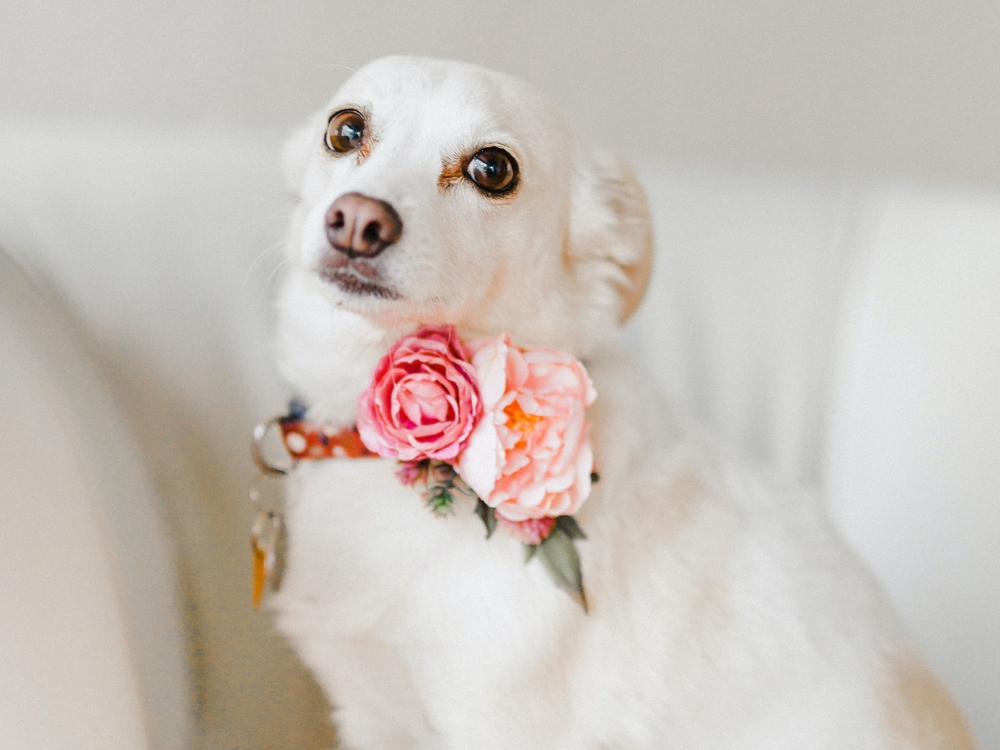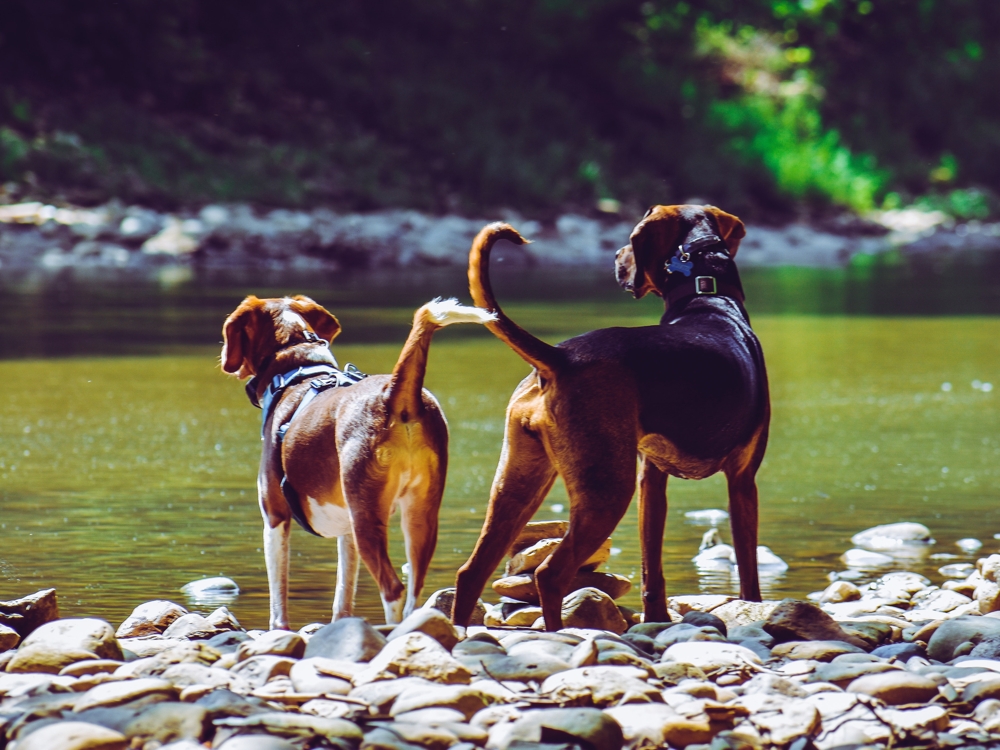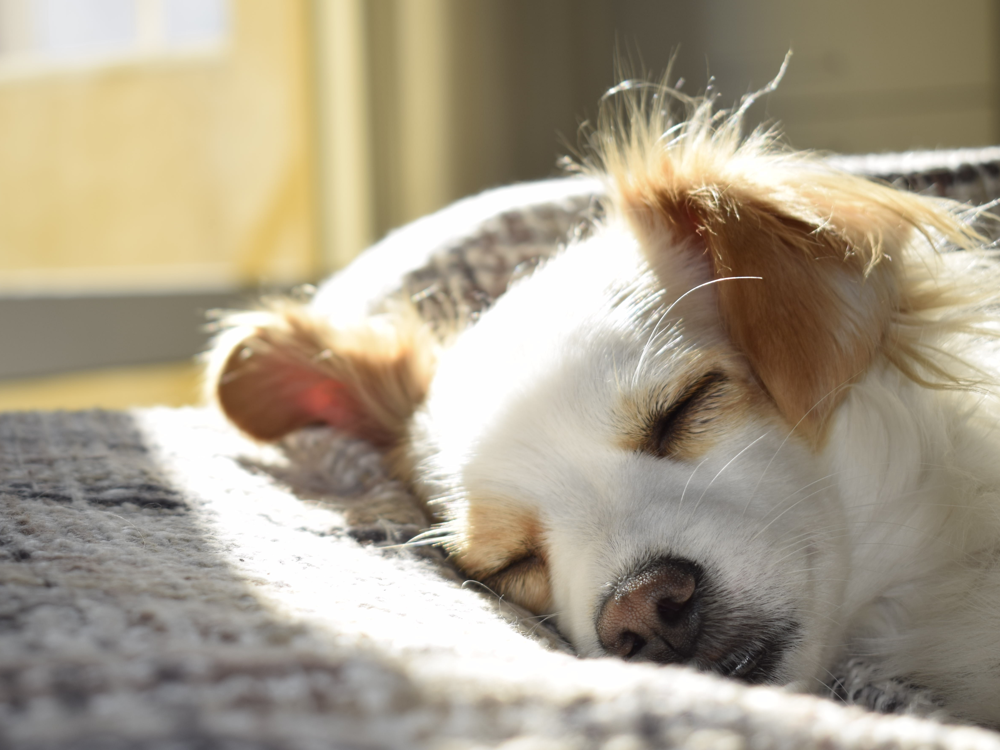What Causes Tear Stains and How to Treat Them
Share
[Sassy_Social_Share]Dogs are emotional creatures, but they don’t shed actual tears when they cry. They do, however, get runny eyes sometimes. Allergies, infections and other issues can cause your dog’s eyes to water, but regardless of the reason, it can cause tear stains. These rusty-brown bits of stained fur below the corner of your dog’s eyes are often just unsightly. But occasionally, they can indicate a medical problem. When they appear, dog owners have two key questions: Is my dog okay? How do I remove tear stains from my dog’s eyes?

It is normal for a dog’s eyes to water a bit, like our own. Eyes generate a small amount of tear fluid to keep the surface from getting too dry and to clean any tiny bits of dust from the eye. The canine eye is structured for this and for the tears to drain down the dog’s throat. Excess tearing or a blockage can lead to tear stains in dogs. Their tears contain porphyrin, a pigment that causes the typically reddish brown stains. Porphyrin is also in a dog’s saliva and urine, so dogs can get similar stains in other locations. Any dog can get tear stains, but they show up most on white or cream colour dogs.
Eye discharge of any other colour can indicate a more serious problem. Yellow or green discharge is an infection. Grey or white eye discharge happens when a dog has dry eye, which can be painful. Both eye infections and dry eye are easily treated, and your vet’s prompt attention can solve the problem.
Why Does My Dog Have Tear Stains?
Most of the time, tear stains appear gradually. But sometimes a dog will develop a problem suddenly with excessive tearing or discharge. That suggests an infection. Whether your dog’s tear stains appear slowly and gradually or out of the blue, the first thing to do is make an appointment with your vet. You can remove tear stains from a dog’s eyes, but unless you also remove the cause they will just keep coming back. Cleaning them without checking with your vet about the cause can also leave your dog suffering from an untreated infection.
Some breeds are particularly prone to runny eyes and tear stains because of the structure of their anatomy. Shih Tzus, Poodles, Bichon Frises and Malteses are more likely to develop tear stains. Dogs with short noses (brachycephalic breeds) are also prone to tear stains because of the shape of their faces.
Very often allergies are to blame. In that case, pinpointing what is triggering your dog’s allergic reaction is key. Dogs do suffer from seasonal allergies, so if tear stains appear in the spring, that’s a likely cause. They can also be allergic to dust or household cleaners. Some dogs react to plastic food and water bowls and need stainless steel or ceramic dishes. Runny eyes and tear stains can also be a symptom of a food intolerance. In that case, switching to a food such as Leader Sensitive or Go Native can solve the problem.
Once you get the cause sorted out, it’s time to learn how to remove tear stains from a dog’s eyes.
Cleaning tear stains isn’t usually a once and done job. Once you identify and eliminate the cause, the staining does not stop overnight. If your dog gets anxious having their face handled, it might be better to leave the initial cleaning to the vet or a professional groomer. They can safely trim the stained fur below the corner of the eye and gently wash away any remaining stain. After that, you can take over.
How Do I Remove Tear Stains from My Dog’s Eyes?
Your favourite pet shop probably carries a selection of products to remove tear stains from dogs’ eyes. Your vet or groomer might have a recommendation too. Always follow the instructions carefully and avoid getting the product in your dog’s eyes. It’s one thing to watch the vet or groomer do this, but many owners are still left wonder how do I remove tear stains from my dog’s eyes?
Dogs are often protective of their faces, and they won’t welcome your attention to their eyes at first. It’s best to start slowly. Before using the tear stain cleaning product, get your dog used to you cleaning around their eyes. Start with a warm, damp cloth and very gently wipe the stained area a few times. The goal is just to get your dog used to this, not to do a thorough cleaning job. Follow up each cleaning session with praise and treats. You can do this a few times a day for a couple of days, and once you are confident your dog won’t panic, you can start using the tear stain remover.
If your dog continues to develop tear stains and your vet is confident it isn’t an infection or allergic reaction, you can continue using tear stain remover as needed when you groom your dog. All dogs need regular grooming, but their grooming schedule depends on many factors. If your dogs has short, sleek hair and is mostly inside the house, a quick weekly brush is enough. Dogs with longer coats and those that are outside more will need more frequent grooming. Ten minutes of brushing every evening can be a relaxing time to bond. If your dog has tear stains, you can remove them during your regular grooming. Check the tear stain remover’s instructions so you don’t use it too often. When cleaning tear stains is part of your grooming routine, your dog will get used to it and they’ll look fantastic.






